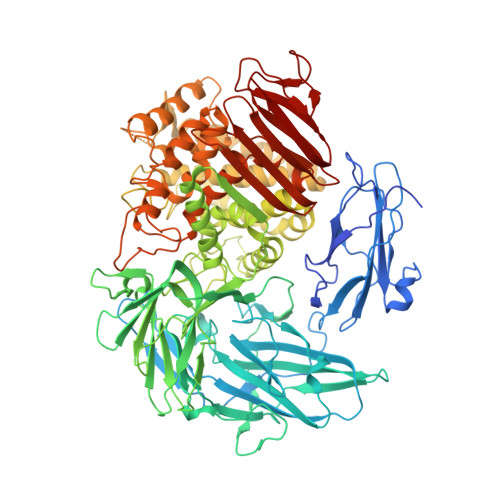Biochemical Characterization of the alpha-l-RhamnosidaseDtRha fromDictyoglomus thermophilum: Application to the Selective Derhamnosylation of Natural Flavonoids.
Guillotin, L., Kim, H., Traore, Y., Moreau, P., Lafite, P., Coquoin, V., Nuccio, S., de Vaumas, R., Daniellou, R.(2019) ACS Omega 4: 1916-1922
- PubMed: 31459445
- DOI: https://doi.org/10.1021/acsomega.8b03186
- Primary Citation of Related Structures:
6I60 - PubMed Abstract:
¦Á-l-Rhamnosidases are catalysts of industrial tremendous interest, but their uses are still somewhat limited by their poor thermal stabilities and selectivities. The thermophilic Dt Rha from Dictyoglomus thermophilum was cloned, and the recombinant protein was easily purified to homogeneity to afford 4.5 mg/L culture of biocatalyst. Michaelis-Menten parameters demonstrated it to be fully specific for ¦Á-l-rhamnose. Most significantly, Dt Rha demonstrated to have a stronger preference for ¦Á(1 ¡ú 2) linkage rather than ¦Á(1 ¡ú 6) linkage when removing rhamnosyl moiety from natural flavonoids. This selectivity was fully explained by the difference of binding of the corresponding substrates in the active site of the protein.
Organizational Affiliation:
Universit¨¦ d'Orl¨¦ans, CNRS, ICOA, UMR 7311, Rue de Chartres, BP 6759, 45067 Orl¨¦ans Cedex 2, France.
















